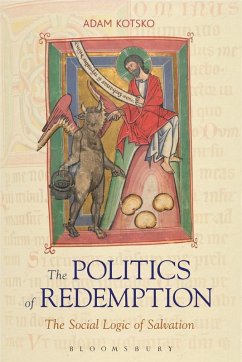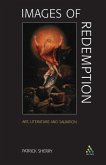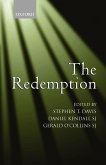Adam KotskoThe Politics of Redemption
The Social Logic of Salvation
Acknowledgments
>
Chapter 1: Thinking relationally
>
'Religionless Christianity' and community
>Ontology and 'being-with'
>A social-relational reading of atonement theory
>
Chapter 2: Questioning atonement
>
Feminist and womanist perspectives
>Theology and social theory
>A case study: The question of redemptive suffering
>
Chapter 3: Reclaiming the tradition
>
Violent hospitality: Boersma
>Narrative, not ontology: Weaver
>Divine unilateralism: Aulen
>
Chapter 4: Irenaeus
>
Redemption as recapitulation
>One human race
>The principle of persuasion
>The togetherness of God and creation
>
5: Gregory of Nyssa
>
Birth and resurrection
>Sensible and intelligible
>Dealing with the devil
>
Chapter 6: Anselm
>
Variations on a theme
>Displacing the devil
>Original sin and its avoidance
>Making the payment
>'Out of love of the debtor?'
>
Chapter 7: Abelard
>
What is Abelard's atonement theory?
>Implications: Publicity and han
Predestination and free will
>
Chapter 8: Community and related questions
>
An outstanding question
>Predestination and community: Karl Barth
>Representation and community: Dorothee Soelle
>Religionless vs. demythologizing interpretation
>
Chapter 9: Politics of redemption
>
The ontology
>The problem: Possession and rule
>The solution: A persuasive fearlessness
>
Bibliography








